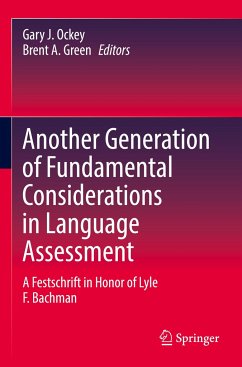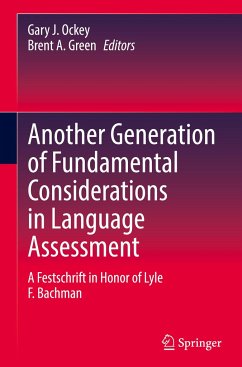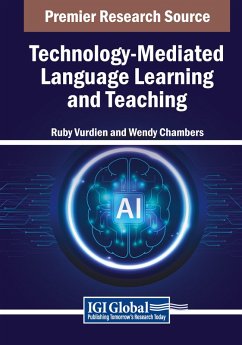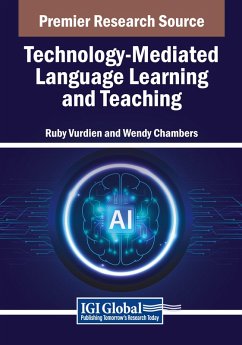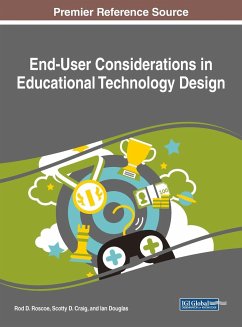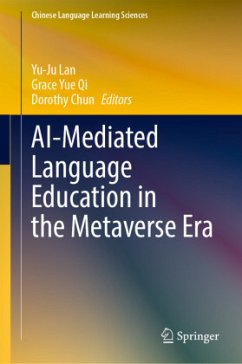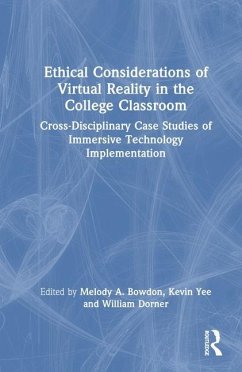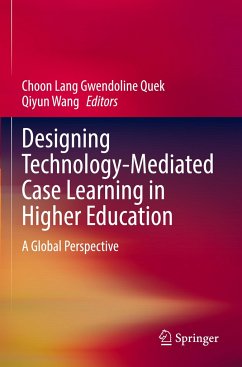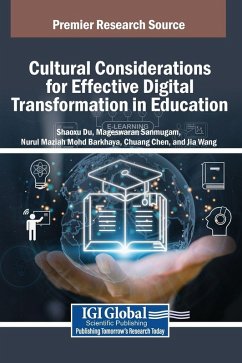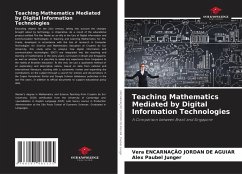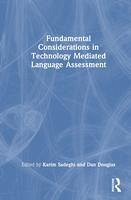
Fundamental Considerations in Technology Mediated Language Assessment
Versandkostenfrei!
Versandfertig in 1-2 Wochen
153,99 €
inkl. MwSt.
Weitere Ausgaben:

PAYBACK Punkte
77 °P sammeln!
Fundamental Considerations in Technology Mediated Language Assessment aims to address issues such as how the forced integration of technology into second language assessment has shaped our understanding of key traditional concepts like validity, reliability, washback, authenticity, ethics, fairness, test security, and more.





